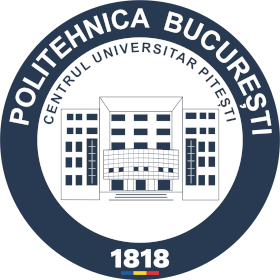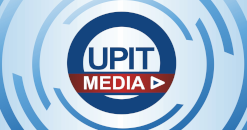- Facultés
- Facultatea de Științe ale Educatiei, Științe Sociale şi Psihologie
- Departamentul de Științe ale Educației
- SBESS Journal
- Publication ethics and malpractice statement - SBESS Journal
Back to SBESS Journal Home Page
PUBLICATION ETHICS AND MALPRACTICE STATEMENT
The SCIENTIFIC BULLETIN – EDUCATION SCIENCES SERIES referred as SBESS Journal is a bi-year double-blind peer reviewed Journal edited by the Faculty of Educational Sciences (FSEd) of University of Piteşti (UPIT) and is one of the most important national publication in the Sciences of Education Field.
It is distributed in more than 10 European countries and international areas and is distributed to almost all universities in Romania, being scientifically supplied with papers by a great number of Romanian and foreign Universities, researchers, educators and experts in Sciences of Education field.
The SBESS Journal is organized in multiple thematic sections such as: educational policies, studies and research programmes, education psychology, educational management, history of pedagogical ideas, school laboratory etc. The sections are re-denominated according o the specificity of the papers accepted for publication as to various criteria when organized scientific events take place.
The target groups of SBESS Journal consist in educators/ teachers at all levels of educational organizations: prep-schools, primary and secondary schools, high-schools, higher education institutions; researchers in the field of education sciences: school pedagogy, psychology, sociology, educational marketing; conceivers of educational policies and top management strategic planners in education system; specialist and proficient practicians in life-long learning and adults’ training.
SBESS Journal provides instant, worldwide and barrier-free access to the full-text of all published manuscripts to all interested readers in the best interests of the educational research community.
The prevention of publication malpractice is one of the important responsibilities of SBESS Journal editors. It is expected from every author that they will submit accurate information's and sufficient details relevant to their research paper. Any kind of unethical behaviour is not acceptable.
The SBESS Journal Editors agree that is necessary to adopt high standards of expected ethical behavior for all parties involved in the act of publishing: the author, the journal editor, the peer reviewer, the publisher and the society, and takes all possible measures against any publication malpractices.
In the same manner, the SBESS Journal is committed to objective and fair double-blind peer-review of the submitted for publication works and to prevent any actual or potential conflict of interests between the editorial and review personnel and the reviewed material.
All authors submitting their papers for publication in SBESS Journal as original articles attest the originality of their work and the fact that by their articles they do not plagiarize or infringe the copyright of anyone. Authors also affirm that all paper’s authors have seen and agreed to the submitted version of the manuscript and their inclusion of name(s) as co-author(s). The authors acknowledge that they have disclosed all and any actual or potential conflicts of interest with their work or partial benefits associated with it.
The Editors takes its duties of guardianship over all stages of publishing extremely seriously and recognizes the ethical and other responsibilities.
SBESS Journal editors are committed to ensuring that advertising, reprint or other commercial revenue has no impact or influence on editorial decisions. In addition, the Faculty of Educational Sciences (FSEd) and the editors will assist in communications with other journals and/or publishers where this is useful and necessary.
Any departures from the above-defined rules should be reported directly to the Editors of SBESS Journal, who are unequivocally committed to providing swift resolutions to any of such a type of problems.
Duties of the Editorial Board
The editor is assisted in making editorial decisions by peer reviews and through the editorial communications with the author may also assist the author in improving the paper.
Publication decisions
The editors of SBESS Journal are responsible for deciding which of the articles submitted to the journal should be published.
The editors of SBESS Journal may be guided by the policies of the journal's editorial board and constrained by such legal requirements as shall then be in force regarding libel, copyright infringement and plagiarism. The editors may confer with other editors or reviewers in making this decision.
Based on the review report of the editorial board, the editor can accept or reject the manuscript or can send the same for modification.
Involvement and cooperation in investigations
The editors will take reasonably responsive measures when ethical complaints have been presented concerning a submitted manuscript or published paper, in conjunction with the publisher (or society).
Such measures will generally include contacting the author of the manuscript or paper and giving due consideration of the respective complaint or claims made, but may also include further communications to the relevant institutions and research bodies, and if the complaint is upheld, the publication of a correction, retraction, expression of concern, or other note, as may be relevant.
Every reported act of unethical publishing behavior must be looked into, even if it is discovered years after publication.
Review of manuscripts
The editors will ensure that each manuscript is initially evaluated by the editors who may make use of appropriate software to examine the originality of the contents of the manuscript and after passing this test, manuscript is forwarded to two referees for blind peer review, and each of whom will make a recommendation to publish the manuscript in its present form or to modify or to reject the same.
The review period will be from a week to one month (maximum two months in special circumstances).
Fair Play
Manuscripts shall be evaluated solely on their intellectual merit without regard to authors’ race, gender, sexual orientation, religious belief, ethnic origin, citizenship, or political philosophy.
The editors at any time evaluate manuscripts for their intellectual content without regard to race, gender, sexual orientation, religious belief, ethnic origin, citizenship, or political philosophy of the authors.
Confidentiality
The editors and the editorial staff must not disclose any information about a submitted manuscript to anyone other than the corresponding author, reviewers, potential reviewers, other editorial advisers, and the publisher, as appropriate.
It is essential that all who participate in producing the journal conduct themselves as authors, reviewers, editors, and publishers in accord with the highest level of professional ethics and standards.
By submitting a manuscript to SBESS Journal, each author explicitly confirms that the manuscript meets the highest ethical standards for authors and co-authors.
Unpublished materials disclosed in a submitted manuscript will not be used in an editor's own research without the express written consent of the author.
Any manuscripts received for review will be treated as confidential documents. They will not be shown to or discussed with others except as authorized by the editors of SBESS Journal.
Disclosure and conflicts of interest
Unpublished materials disclosed in a submitted manuscript must not be used by anyone who has a view of the manuscript in his or her own research without the express written consent of the author.
The editor of the SBESS Journal can use unpublished materials disclosed in submitted manuscript for his own research only after taking written consent of the author.
Privileged information or ideas obtained through peer review must be kept confidential and not used for personal advantage. Reviewers should not consider manuscripts in which they have conflicts of interest resulting from competitive, collaborative, or other relationships or connections with any of the authors, companies, or institutions connected to the papers.
All authors should disclose in their manuscript any financial or other substantive conflict of interest that might be construed to influence the results or interpretation of their manuscript. All sources of financial support for the project should be disclosed.
Duties of Authors
Reporting standards
Authors of reports of original research to SBESS Journal should present an accurate account of the work performed as well as an objective discussion of its significance. Underlying data should be represented accurately in the paper.
A paper submitted to SBESS Journal should contain sufficient detail and references to permit others to replicate the work. Fraudulent or knowingly inaccurate statements constitute unethical behavior and are unacceptable.
Review and professional publication articles should also be accurate and objective, and editorial ‘opinion’ works should be clearly identified as such.
Authors should submit their original research after preparing the same as per the submission guidelines of SBESS Journal.
Data access and retention
Authors are asked to provide the raw data in connection with a paper for editorial review, and should be prepared to provide public access to such data, if practicable, and should in any event be prepared to retain such data for a reasonable time after publication.
Originality and plagiarism
The authors should ensure that they have written entirely original works, and if the authors have used the work and/or words of others that this has been appropriately cited or quoted.
Plagiarism takes many forms, from “passing off” another’s paper as the author’s own paper, to copying or paraphrasing substantial parts of another’s paper (without attribution), to claiming results from research conducted by others.
Plagiarism in all its forms constitutes unethical publishing behavior and is unacceptable.
Multiple, redundant or concurrent publications
An author should not in general publish manuscripts describing essentially the same research in more than one journal or primary publication.
Submitting the same manuscript to more than one journal concurrently constitutes unethical publishing behaviour and is unacceptable.
Publication of some kinds of articles (e.g. clinical guidelines, translations) in more than one journal is sometimes justifiable, provided certain conditions are met.
The authors and editors of the SBESS Journal concerned must agree to the secondary publication, which must reflect the same data and interpretation of the primary document. The primary reference must be cited in the secondary publication.
Acknowledgement of sources
Proper acknowledgment of the work of others must always be given. Authors should cite publications that have been influential in determining the nature of the reported work. Information obtained privately, as in conversation, correspondence, or discussion with third parties, must not be used or reported without explicit, written permission from the source.
Authors agree that all ideas taken from other sources (books, articles, internet), the source of the ideas must be mentioned in the main text and fully referenced at the end of the paper.
All material which is quoted essentially word-for-word from other sources is given in quotation marks and referenced.
Information obtained in the course of confidential services, such as refereeing manuscripts or grant applications, must not be used without the explicit written permission of the author of the work involved in these services.
Authorship of the paper
Authorship should be limited to those who have made a significant contribution to the conception, design, execution, or interpretation of the reported study. All those who have made significant contributions should be listed as co-authors.
Where there are others who have participated in certain substantive aspects of the research project, they should be acknowledged or listed as contributors.
The corresponding author should ensure that all appropriate co-authors and no inappropriate co-authors are included on the paper, and that all co-authors have seen and approved the final version of the paper and have agreed to its submission for publication.
Hazards and human or animal subjects
If the work involves chemicals, procedures or equipment that have any unusual hazards inherent in their use, the author must clearly identify these in the manuscript.
If the work involves the use of animal or human subjects, the author should ensure that the manuscript contains a statement that all procedures were performed in compliance with relevant laws and institutional guidelines and that the appropriate institutional committee(s) has approved them.
Authors should include a statement in the manuscript that informed consent was obtained for experimentation with human subjects. The privacy rights of human subjects must always be observed.
Disclosure and conflicts of interest
All authors should disclose in their manuscript any financial or other substantive conflict of interest that might be construed to influence the results or interpretation of their manuscript. All sources of financial support for the project should be disclosed.
Examples of potential conflicts of interest which should be disclosed include employment, consultancies, stock ownership, honoraria, paid expert testimony, patent applications/registrations, and grants or other funding. Potential conflicts of interest should be disclosed at the earliest stage possible.
Editors should require all contributors to disclose relevant competing interests and publish corrections if competing interests are revealed after publication. If needed, other appropriate action should be taken, such as the publication of a retraction or expression of concern.
Reviewers should not consider manuscripts in which they have conflicts of interest resulting from competitive, collaborative, or other relationships or connections with any of the authors, companies, or institutions connected to the papers.
Unpublished materials disclosed in a submitted manuscript must not be used in an editor's own research without the express written consent of the author. Privileged information or ideas obtained through peer review must be kept confidential and not used for personal advantage.
Editors should recuse themselves (i.e. should ask a co-editor, associate editor or other member of the editorial board instead to review and consider) from considering manuscripts in which they have conflicts of interest resulting from competitive, collaborative, or other relationships or connections with any of the authors, companies, or (possibly) institutions connected to the papers.
Fundamental errors in published works
When an author discovers a significant error or inaccuracy in his/her own published work, it is the author’s obligation to promptly notify the journal editor or publisher and cooperate with the editor to retract or correct the paper.
If the editor or the publisher learns from a third party that a published work contains a significant error, it is the obligation of the author to promptly retract or correct the paper or provide evidence to the editor of the correctness of the original paper.
Duties of Reviewers
Contribution to editorial decisions
Peer reviewers assists the editor in making editorial decisions and through the editorial communications with the author may also assist the author in improving the paper.
Peer review is an essential component of formal scholarly communication, and lies at the heart of the scientific method. SBESS Journal agrees that all scholars who wish to contribute to publications have an obligation to do a fair share of reviewing.
Promptness
Any selected referee who feels unqualified to review the research reported in a manuscript within stipulated time or knows that its prompt review will be impossible should notify the editor and excuse himself from the review process so that the same could be sent to any other reviewer.
Confidentiality
Information regarding manuscripts submitted by authors should be kept confidential and be treated as privileged information.
Any manuscripts received for review must be treated as confidential documents. They must not be shown to or discussed with others except as authorized by the Editors of SBESS Journal.
Privileged information or ideas obtained through peer review must be kept confidential and not used for personal advantage.
Standards of objectivity
The review process should be conducted objectively. Personal criticism of the author is inappropriate. Referees should express their views clearly with supporting arguments.
Acknowledgement of sources
Reviewers should identify relevant published work that has not been cited by the authors. Any statement that an observation, derivation, or argument had been previously reported should be accompanied by the relevant citation.
Reviewers agree that all ideas taken from other sources (books, articles, internet), the source of the ideas must be mentioned in the main text and fully referenced at the end of the paper.
All material which is quoted essentially word-for-word from other sources is given in quotation marks and referenced.
A reviewer should also call to the editor's attention any substantial similarity or overlap between the manuscript under consideration and any other published paper of which they have personal knowledge.
Disclosure and conflict of interest
Reviewers should not consider manuscripts in which they have conflicts of interest resulting from competitive, collaborative, or other relationships or connections with any of the authors, companies, or institutions connected to the papers.
All participants in the peer-review process must disclose all relationships that could be viewed as potential conflicts of interest. Disclosure of such relationships is important in connection with editorials and review articles, because it can be more difficult to detect bias in these types of publications than in reports of original research.








